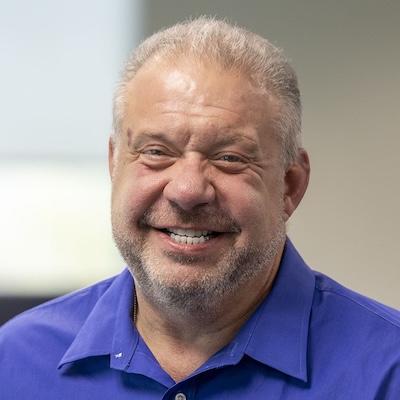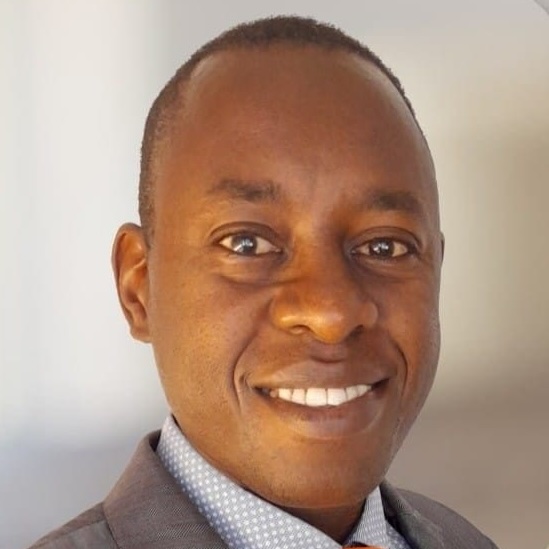- CD243: Target Nicaragua Jennifer Briney 2:08:14
In mid-November, following the re-election of Nicaraguan President Daniel Ortega, Congress passed and President Biden signed the RENACER Act, which escalated an ongoing economic war against President Daniel Ortega. In this episode learn about what the RENACER Act does as we examine the situation in Nicaragua and find out and why Daniel Ortega has a target on his back.
Please Support Congressional Dish – Quick Links
- Contribute monthly or a lump sum via PayPal
- Support Congressional Dish via Patreon (donations per episode)
- Send Zelle payments to: Donation@congressionaldish.com
- Send Venmo payments to: @Jennifer-Briney
- Send Cash App payments to: $CongressionalDish or Donation@congressionaldish.com
- Use your bank’s online bill pay function to mail contributions to: 5753 Hwy 85 North, Number 4576, Crestview, FL 32536.
Please make checks payable to Congressional Dish
Thank you for supporting truly independent media!
Background Sources Recommended Congressional Dish Episodes Essential Background Episodes
CD102: The World Trade Organization: COOL?
CD167: Combating Russia (NDAA 2018) LIVE
CD186: National Endowment for Democracy
CD187: Combating China
Rabbit Hole Episodes
CD041: Why Attack Syria?
CD067: What Do We Want In Ukraine?
CD108: Regime Change (Syria)
CD131: Bombing Libya
CD156: Sanctions – Russia, North Korea & Iran
CD172: The Illegal Bombing of Syria
CD176: Target Venezuela: Regime Change in Progress
CD190: A Coup for Capitalism
CD191: The “Democracies” Of Elliott Abrams
CD208: The Brink of the Iran War
CD224: Social Media Censorship
CD225: Targets of the Free Marketeers
CD229: Target Belarus
U.S.-Nicaragua Relations
Maureen Taft-Morales. November 4, 2021. “Nicaragua in Brief: Political Developments in 2021, U.S. Policy, and Issues for Congress.” Congressional Research Service.
U.S. Department of State, Bureau of Western Hemisphere Affairs. September 14, 2021. U.S. Relations With Nicaragua
William I. Robinson. August 19, 2021. “Crisis in Nicaragua: Is the Ortega-Murillo Government Leftist? (Part I)” North American Congress on Latin America (NACLA)
Clare Ribando Seelke. March 17, 2008. “Nicaragua: Political Situation and U.S. Relations” [RS22836]. Congressional Research Service.
Maureen Taft-Morales. April 19, 2007. “Nicaragua: The Election of Daniel Ortega and Issues in U.S. Relations [RL33983] Congressional Research Service.
IMF Staff. May 16, 2006. “Nicaragua : Staff Report for the 2005 Article IV Consultation, Seventh, Eighth, and Ninth Reviews Under the Three Year Arrangement Under the Poverty Reduction and Growth Facility, Requests for Rephasing and Waiver of Performance Criteria, Financing Assurances Review, and Request for Extension of the Arrangement.” The International Monetary Fund.
Author’s Name Redacted. May 16, 1997. “Nicaragua: Changes Under the Chamorro Government and U.S. Concerns” [96-813 F]. Congressional Research Service.
Edgar Chamorro. January 9, 1986. “Terror Is the Most Effective Weapon of Nicaragua’s ‘Contras.’” The New York Times.
Fred Hiatt, Joanne Omang, Michael Getler and Don Oberdorfer. April 7, 1984. “CIA Helped To Mine Ports In Nicaragua.” The Washington Post.
Nicaragua Relationships to Russia and China
100% Noticias. September 9, 2021. “Nicaraguan Parliament Ratifies Security Agreement with Russia. Havana Times.
“Russia, Nicaragua ink information security deal.” July 19, 2021. TASS: Russian News Agency. Frida Ghitis. June 8, 2017. “A Russian Satellite-Tracking Facility in Nicaragua Raises Echoes of the Cold War.” World Politics Review.
Cristina Silva. May 22, 2017. “New Cold War: Is Russia Spying on the U.S. From a Nicaragua Military Compound?” Newsweek.
Carrie Kahn. November 17, 2016. “U.S. To Monitor Security Agreement Signed Between Russia And Nicaragua.” NPR Morning Edition.
John Otis. June 4, 2015. “Nicaraguan Canal Plan Riles Landholders.” The Wall Street Journal.
Matthew Miller. May 4, 2014. “China’s ‘ordinary’ billionaire behind grand Nicaragua canal plan.” Reuters.
2021 Sanctions
“Nicaragua Leaves the Organization of American States.” November 19, 2021. Telesur.
U.S. Department of the Treasury. November 15, 2021. “Treasury Sanctions Public Ministry of Nicaragua and Nine Government Officials Following Sham November Elections.”
Antony Blinken. November 15, 2021. “New Sanctions Following Sham Elections in Nicaragua.” U.S. Department of State.
Ned Price. August 6, 2021. “The United States Restricts Visas of 50 Additional Nicaraguan Individuals Affiliated With Ortega-Murillo Regime.” U.S. Department of State.
Antony Blinken. July 12, 2021. “The United States Restricts Visas of 100 Nicaraguans Affiliated with Ortega-Murillo Regime.” U.S. Department of State.
U.S. Department of the Treasury. June 9, 2021. “Treasury Sanctions Nicaraguan Officials for Supporting Ortega’s Efforts to Undermine Democracy, Human Rights, and the Economy.”
“Nicaragua Minimum Wage.” Minimum-Wage.org
2021 Nicaraguan Elections
“North Americans Debunk US & OAS Claims on Nicaragua Election.” November 10, 2021. Kawsachun News.
Monique Beals. November 7, 2021. “Biden slams Nicaragua’s ‘sham elections,’ calls Ortegas autocrats.” The Hill.
Meta (formerly Facebook). November 1, 2021. “October 2021 Coordinated Inauthentic Behavior Report.”
Meta (formerly Facebook). November 1, 2021. “October 2021 Coordinated Inauthentic Behavior Report Summary.”
Nahal Toosi. October 26, 2021. “Tiny Nicaragua is becoming a big problem for Joe Biden.” Politico.
Antony Blinken. October 22, 2021. “The United States Applauds the OAS Resolution Condemning the Undemocratic Electoral Process and Repression in Nicaragua.” U.S. Embassy in El Salvador.
Carlos Dada. October 6, 2021. “La prioridad ahorita es que no nos maten; luego, la justicia y la democracia.” El Faro.
Kai M. Thaler and Ryan C. Berg. August 24, 2021. “To replace autocrats of Nicaragua, think beyond this fall’s election.” The Los Angeles Times.
Associated Press. December 11, 2020. “Nicaragua opposition figure seeks rule changes for 2021 vote.” The Associated Press.
Foreign Agent Law
Guy José Bendaña-Guerrero. May 2, 2021. “Changes in Nicaragua’s Consumer Law.” Marca Sur.
“Nicaragua: National Assembly Approves Law To Defend Its People. December 22, 2020. Telesur.
LAND Staff. October 29, 2020. “Nicaragua Approves Cybercrime Law.” Latin America News Dispatch (LAND).
Associated Press. October 15, 2020. “Nicaragua passes controversial ‘foreign agent’ law.” ABC News.
Oretega’s Arrested Opponents
Felix Maradiaga Biography. World Economic Forum.
Felix Maradiaga Curriculum Vitae. Academia.edu
Cristiana Chamorro Biography. The Dialogue: Leadership for the Americas.
Cristiana Chamorro LinkedIn Profile.
Juan Sebastian Chamorro LinkedIn Profile.
Samantha Sultoon Biography. The Atlantic Council.
Jared Genser, Brian Tronic, Stephanie Herrmann, and Michael Russ. October 28, 2021. “Petition to United Nations Working Group on Arbitrary Detention.” Perseus Strategies.
Tom Phillips. October 22, 2021. “Nicaraguan business leaders arrested in Ortega’s pre-election crackdown.” The Guardian.
“Nicaragua: Police arrest 2 more opposition contenders.” September 6, 2021. Deutsche Welle (DW).
Ismael López Ocampo and Mary Beth Sheridan. June 9, 2021. “As election looms, Nicaraguan government arrests Ortega’s challengers.” The Washington Post.
“Ortega Holds Arturo Cruz Prisoner at Interrogation Jail.” June 7, 2021. Havana Times.
“Nicaraguan police detain another opposition presidential contender. June 5, 2021. Reuters.
“Nicaragua: Opposition Leader Linked To Money Laundering Scandal.” June 3, 2021. Telesur.
The Guardian Staff and agencies in Managua. June 2, 2021. “Nicaragua police detain opposition leader and expected Ortega challenger.” The Guardian.
Trump Era – April 2018 Protests
Paz Gómez. August 25, 2021. “The Break-Up: COSEP’s Love Affair with Daniel Ortega.” Impunity Observer.
Mary Beth Sheridan. August 4, 2019. “Nicaragua’s Ortega is strangling La Prensa, one of Latin America’s most storied newspapers.” The Washington Post.
U.S. Department of the Treasury. April 17, 2019. “Treasury Targets Finances of Nicaraguan President Daniel Ortega’s Regime.”
Samantha Sultoon. November 29, 2018. “Trump administration’s new Nicaragua sanctions strategically target the top.” New Atlanticist Blog from the Atlantic Council.
Blocking Property of Certain Persons Contributing to the Situation in Nicaragua [Executive Order 13851] November 27, 2018. Federal Register Vol. 83 No. 230.
Rocio Cara Labrador. November 26, 2018. “Nicaragua in Crisis: What to Know.” Council of Foreign Relations.
Rafael Bernal. November 01, 2018. “Bolton dubs Cuba, Venezuela and Nicaragua the ‘Troika of Tyranny’” The Hill.
Mabel Calero. July 26, 2018. “Daniel Ortega buries his model of alliance with private companies that lasted 11 years.” La Prensa.
Max Blumenthal. June 19, 2018. “US govt meddling machine boasts of ‘laying the groundwork for insurrection’ in Nicaragua.” The Grayzone.
“Pension reforms in Nicaragua leads to violent protests and opposition from business groups.” The Caribbean Council.
Foreign “Assistance” to Nicaragua
Associated Press. August 26, 2021. “Nicaragua Orders Closure of 15 More NGOs.” U.S. News and World Report.
William I. Robinson. August 20, 2021. “Crisis in Nicaragua: Is the US Trying to Overthrow the Ortega-Murillo Government? (Part II)” North American Congress on Latin America (NACLA)
Elliott Abrams. June 9, 2021. “Biden and Democracy in Nicaragua.” Council on Foreign Relations.
Ben Norton. June 1, 2021. “How USAID created Nicaragua’s anti-Sandinista media apparatus, now under money laundering investigation.” The Grayzone.
John Perry. August 4, 2020. “The US contracts out its regime change operation in Nicaragua.” Council on Hemispheric Affairs.
Responsive Assistance in Nicaragua [RFTOP No: 72052420R00004] “Section C – Statement of Work.” March-April 2020.
USAID OIG Latin America and Caribbean Regional Office. October 24, 2019. “Financial Audit of the Media Strengthening Program in Nicaragua, Managed by Fundación Violeta Barrios de Chamorro Para la Reconciliación y la Democracia, Cooperative Agreement AID-524-A-14-00001, January 1 to December 31, 2018 (9-524-20-004-R)” USAID.
IMF Western Hemisphere Department Staff. June 27, 2017. “Nicaragua : Selected Issues.” The International Monetary Fund.
Richard Falk. February 21, 2012. “When an ‘NGO’ is not an NGO: Twists and turns under Egyptian skies.” Al Jazeera.
Laws S. 1064: RENACER Act
Sponsor: Senator Bob Menendez (D-NJ)
Passed by Voice Vote in the Senate November 3, 2021 House Vote Breakdown
Law Outline
- “Congress unequivocally condemns the politically motivated and unlawful detention of presidential candidates Cristiana Chamorro, Arturo Cruz, Felix Maradiaga, and Juan Sebastian Chamorro.”
- “Congress unequivocally condemns the passage of the Foreign Agents Regulation Law, the Special Cybercrimes Law, the Self Determination Law, and the Consumer Protection Law by the National Assembly of Nicaragua…”
- “The President should review” the continued participation of Nicaragua in the agreement.
- The authority listed is Article 21.2 of the agreement that says, “Nothing in this agreement shall be construed… to preclude a Party from applying measures that it considers necessary for the fulfillment of its obligations with respect to the maintenance or restoration of international peace or security, or the protection of its own essential security interests.”
- President Trump issued an Executive Order on November 27, 2018 that said that the response to the protests that began on April 18, 2018 “and the Ortega regime’s systematic dismantling and undermining of democratic institutions and the rule of law, its use of indiscriminate violence and repressive tactics against civilians, as well as its corruption leading to the destabilization of Nicaragua’s economy constitutes an unusual and extraordinary threat to the national security and foreign policy of the United States.”
Sec. 4: Restrictions on International Financial Institutions Relating to Nicaragua
- Directs the United States Executive Director at the World Bank, Inter-American Development Bank, and the International Monetary Fund to “increase scrutiny of any loan or financial or technical assistance provided for a project in Nicaragua” and “to ensure” that the loan or assistance is administered through an entity with full independence from the Government of Nicaragua.
Sec. 5: Targeted Sanctions to Advance Democratic Elections
- The Secretary of State and Secretary of Treasury, “in consultation” with the intelligence community, “shall develop and implement a coordinated strategy” for implementing targeted sanctions in order to “facilitate the necessary conditions for free, fair, and transparent elections in Nicaragua.”
- Targets sanctions specifically at…
- Officials in the government of President Daniel Ortega
- Family members of Daniel Ortega
- High ranking members of the National Nicaraguan Police
- Members of the Supreme Electoral Council of Nicaragua
- Officials of the Central Bank of Nicaragua
- Party members and elected officials from the Sandinista National Liberation Front and their family members
- Businesses that conduct “corrupt” financial transactions with officials in the government of President Daniel Ortega, his party, or his family.
- The sanctions are authorized by the 2018 law (outlined below) against “any foreign person” who, on or after April 18, 2018…
- Used violence “or conduct” that “constitutes a serious abuse” against protestors
- Taken “actions or policies” that undermine “democratic processes or institutions”
- Any current or former government official that used “private or public assets for personal gain or political purposes”
- Any current or former government official involved in corruption related to government contracts
- Any current or former government official involved in bribery
- Any current or former government official that transferred the proceeds of corruption
- Arrested or prosecuted a person disseminating information to the public
- The sanctions include…
- Asset blocking of “all property and interests in property” if they are in the United States, come within the United States, or come within the possession or control of a “United States person.”
- Exclusion from the United States and revocation of visas and other documents.
- Anyone who “violates, attempts to violate, conspires to violate, or causes a violation” of sanctions can be hit with a civil penalty of a $250,000 maximum fine or up to twice the amount of sanctions violating transaction and/or a criminal penalty of up to $1 million or up to 20 years in prison.
Sec. 6: Developing and Implementing a Coordinated Sanctions Strategy with Diplomatic Partners
- Requires the Secretary of State to coordinate with other countries – specifically Canada, members of the European Union, and governments in Latin America and the Caribbean – to impose the sanctions together “in order to advance democratic elections in Nicaragua.”
- Adds Nicaragua to an annual report that gets submitted to Congress. The people identified in the report who are accused of corruption in regards to government contracts, bribery, extortion, money laundering, or “violence, harassment, or intimidation directed at governmental or non governmental corruption investigators” will have their visas revoked and be prohibited from entering the United States.
Sec. 9: Classified Report on the Activities of the Russian Federation in Nicaragua
- The Department of State – working with intelligence officials – will submit a classified report to Congress within 90 days about…
- Cooperation between the Nicaraguan military and Russian military, intelligence, security forces, law enforcement, and Russian security contractors.
- Cooperation between Russia and Nicaragua in telecommunications and satellites
- Economic cooperation, specifically in banking
- Threats that cooperation between Russia and Nicaragua pose to “United States national interests and national security.”
Sec. 12: Supporting Independent News Media and Freedom of Information in Nicaragua
- The Secretary of State, Administrator of USAID and the CEO of the United States Agency for Global Media will submit a report to Congress listing all media “directly or indirectly owned or controlled by President Daniel Ortega, members of the Ortega family, or known allies of the Ortega government” and it will access the extent to which Voice of America is reaching the Nicaraguan people.
Sec. 13: Amendment to Short Title of Public Law 115-335
- Renames the “Nicaraguan Human Rights and Anticorruption Act of 2018” the “Nicaragua Investment and Conditionality Act of 2018” or “NICA Act”
H.R. 1918: Nicaragua Human Rights and Anticorruption Act of 2018
Signed into law on December 20, 2018 Sponsor: Representative Ileana Ros-Lehtinen (R-FL)
Law Outline
Sec. 2: Sense of Congress on Advancing a Negotiated Solution to Nicaragua’s Crisis
- Congress wanted the Catholic Church of Nicaragua to negotiate for early elections on behalf of “civil society”, the student movement, private sector, and the “political opposition”
- Congress did like that the Government of Nicaragua was refusing to negotiate
Sec. 4: Restrictions on International Financial Institutions Relating to Nicaragua
- Forces the Treasury Secretary to instruct our representatives at the World Bank Group and Inter-American Development Bank to oppose “any loan or financial or technical assistance to the Government of Nicaragua for a project in Nicaragua.”
- We can support loans “to address basic human needs” or “promote democracy in Nicaragua”
Sec. 5 : Imposition of Targeted Sanctions with Respect to Nicaragua
- Authorizes sanctions against “any foreign person” who, on or after April 18, 2018…
- Used violence “or conduct” that “constitutes a serious abuse” against protestors
- Taken “actions or policies” that undermine “democratic processes or institutions”
- Any current or former government official that used “private or public assets for personal gain or political purposes”
- Any current or former government official involved in corruption related to government contracts
- Any current or former government official involved in bribery Any current or former government official that transferred the proceeds of corruption
- Arrested or prosecuted a person disseminating information to the public
- The sanctions include…
- Asset blocking of “all property and interests in property” if they are in the United States, come within the United States, or come within the possession or control of a “United States person.”
- Exclusion from the United States and revocation of visas and other documents.
- Punishes anyone who “violates, attempts to violate, conspires to violate, or causes a violation” of sanctions with a civil penalty up to a $250,000 fine or up to twice the amount of sanctions violating transaction and/or a criminal penalty of up to $1 million or up to 20 years in prison.
- The asset blocking sanctions do not authorize the blocking of goods imports.
Sec. 6: Annual Certification and Waiver
- Allows the President to waive the travel restrictions and sanctions.
- The sanctions authorized by this law expire on December 31, 2023.
Audio Sources Kawsachun News – Nicaragua 2021 Election Observer Press Conference
November 10, 2021
- Moderator: I present Paul Pumphrey from Friends of the Congo. Paul Pumphrey: Here in Nicaragua, I saw a free and fair election. I talked to many people who were not a part of the Sandinistas party. And yet they themselves said they were willing to accept whatever result happened in the election. Moderator: Next we have Craig Pasta Jardula who is a journalist based in the United States. Craig Pasta Jardula: Mainly, I want to talk about the process, meaning the chain of custody, because that’s something that we really saw that was great here in Nicaragua, it made this election a home run. The chain of custody is very strong here, including the fact that in Nicaragua, we have something that is awesome that a lot of countries need to adopt, which is where the vote is cast, it is counted, that ensures a strong chain of custody. Moderator: Next is Rick Cohn from Friends of Latin America. 14:57 Rick Cohn: I want to speak just a little bit though a group of 11 of us went to Bilwi on the Caribbean coast. And in the United States, one of the things they’ll use to say this election is fake, is that a high percentage of people voted, and a high percentage of people voted for the FSLN. And that can’t happen, because American politicians that would never happen. Well, so I want to say something about why the voters told us they were voting. They told us that basically, they had two Category Four and Category Five hurricanes last year, and the government came and saved their lives, saved many, many lives. And, you know, people have trust in that government. And then the government came in and made sure the electric was up. In Puerto Rico from a year earlier, electric still isn’t isn’t working, because they, you know, are making money selling electric, but it still doesn’t work. They told us they had new roofs put on almost immediately they were delivered. They told us that the schools were rebuilt. All of the schools were in good condition. Oh, the schools and some of them have new buildings. So we had a situation where they were very happy with the performance of the government. And that is why — oh, they also told us they had one kilometer of road before the FSLN came into power from the neoliberal period, now they have 500 kilometers. And with 70 more kilometers, they’ll be able to drive from all the way to Managua, which they’ve never been able to do in history. So they told us these things. And the FSLN party received the highest percentage of votes, but that’s not strange, because they really support the government. They received 86.7% of the vote. You know, there’s no way that’s made up – it’s not fake. It’s where they’re at. It is certainly the biggest deficiency in democracy in Nicaragua is the interference that there is so much interference from the US government and the media, and the censorship and the lies that they tell. That’s the interference that’s occurring in this election.
- 33:52 Rick Cohn: Corporate media like Facebook, well, all of the corporate media including Facebook and Twitter, but social media, are actually just part of the US system and they’re contracted to provide information back and forth, they’re actually an aspect of the government and they close 1000s of people’s accounts, who are people, and I met some of them, they’re actual people, and they close their accounts. And they weren’t, you know, anyone who was saying anything other than the fact that they may have been supporting the Nicaraguan people or opposed to the the sanctions on Nicaragua.
AN INTERNATIONAL RESPONSE TO ORTEGA’S DESTRUCTION OF DEMOCRACY IN NICARAGUA
September 21, 2021 House Committee on Foreign Affairs, Subcommittee on the Western Hemisphere, Civilian Security, Migration and International Economic Policy
*Hearing not on C-SPAN
Witnesses:
- Emily Mendrala
- Deputy Assistant Secretary of State at the Bureau of Western Hemisphere Affairs
- Laure Chinchilla
- Former President of Costa Rica
- Co-Chair at The Inter-American Dialogue
- Ryan Berg, PhD
- Senior Fellow in the Americas Program at the Center for Strategic and International Studies (CSIS)
- Oct. 2018 – Apr. 2021: Research Fellow at the American Enterprise Institute
- Apr. 2018 – Oct. 2018: Research Consultant at The World Bank
- July 2014 – Oct 2014: US State Department negotiator at the Organization of American States (OAS)
- 2009: Intern for Paul Ryan
- Berta Valle
- Wife of Felix Maradiaga
-
Rep. Albio Sires (D-NJ): The regime has rounded up nearly every potential challenger to Ortega and has not even tried to hide these arrests and forced disappearances under the veneer of legality.
-
05:42 Rep. Albio Sires (D-NJ): Having written the NICA Act with Congresswoman Ileana Ros-Lehtinen (R-FL), I am frustrated that the International Monetary Fund recently provided $350 million to the regime. The IMF should not take Ortega’s us word for it that these funds will be used to address the COVID pandemic.
-
06:53 Rep. Albio Sires (D-NJ): We should also begin preparing a number of severe diplomatic consequences, assuming Nicaragua’s election in November becomes a coronation for Ortega. Nicaragua should be suspended under the International Democratic Charter on November 8, and its participation under the Central America Free Trade Agreement should be reconsidered.
-
10:39 Rep. Mark Green (R-TN): On November 7 a political farce will be held, claiming to resemble elections. No one should be fooled about the outcome — any hope of unseating the socialist dictatorship is sitting inside of Ortega’s prisons.
-
13:56 *Emily Mendrala: As you are well aware, the Ortega-Murillo government has carried out a ruthless crackdown over the past several months, canceling the registration of opposition parties, incarcerating journalists, opposition leaders, potential presidential candidates, students, private sector leaders and others who defend free and fair elections, attacking the free press, closing long standing NGOs that provide humanitarian and medical assistance to Nicaraguans in need.
-
15:06 Emily Mendrala: In the face of sham elections in Nicaragua, we and our international partners must continue to denounce and push back against the Ortega-Murillo government’s anti-democratic rule as well as its use of Russian-inspired laws to carry out repression.
-
17:56 Emily Mendrala: Through USAID we continue to support Nicaraguan civil society, independent media and human rights defenders. Our continued support assures Nicaraguans that the outside world has not forgotten them.
-
19:06 Rep. Albio Sires (D-NJ): Are we using our voice? Is the administration using its voice and vote with international financial institution to oppose loans and other financial assistance to Ortega? Because I have to tell you, it’s very upsetting to me that we do all this work here. We asked the administration to put sanctions on different people. And yet the IMF, which we probably contribute the largest amount of money, or if not, one of the largest amounts of money, they seem to just ignore what’s going on in Nicaragua. And it has to — I intend to write a letter to the IMF. And hopefully we’ll have them before this committee, because this is not acceptable.
-
20:22 Emily Mendrala: We are using our voice and our vote and every opportunity in front of multilateral institutions to oppose lending to the Ortega-Murillo government. We will continue to use our voice, vote and influence to advocate against lending from international financial institutions to the Ortega-Murillo government and we will also continue to collaborate with international partners where appropriate: EU, Canada and others to do the same.
-
30:43 Rep. Joaquin Castro (D-TX): The upcoming November 7 elections will be neither free nor fair
-
1:04:30 Berta Valle: Even though Félix [Maradiaga] has dedicated his life to serving our country, the regime has charged him and others with a conspiracy to undermine national integrity. The government is alleging that Félix and others were part of a global conspiracy to use foreign resources, including from the US Agency for International Development, the International Republican Institute and the National Endowment for Democracy to harm the interests of the nation.
-
1:16:33 Ryan Berg: As well as November 7, I think we need to declare Nicaragua’s elections illegitimate under current conditions.
-
1:27:16 Ryan Berg: Thank you, Congressman Green, for the question. Yes, the two countries that I would point out as extra-hemispheric actors who have have come into the hemisphere to shore up the Ortega regime are Russia and Iran. Russia, we’ve seen with a significant presence in Nicaragua for a while. Its increased its presence in past years, to an extent that I think should be very alarming for the US government. Not only does it have a number of port agreements with Nicaragua, and access to the Caribbean, where it can engage in anti access and area denial capabilities, potentially. But also in cyberspace. We saw recently the Russians and Nicaraguans sign a major agreement in the cyberspace, particularly to help the regime not only increase its domestic security apparatus, but to spy potentially on the opposition on our own citizens, and indeed, potentially on on other governments in Central America, depending upon the strength of the equipment transfers that we’ll see in future. So they have a whole number or whole range of capabilities that they are developing within Nicaragua, that there are signals intelligence stations that are actually quite close to the US Embassy in Managua. And so that’s that’s Russia, Russia has an interest in shoring up this regime on the cheap. And I think Iran has approached the regime in a number of ways, most specifically, in offering partnerships to circumvent US sanctions architecture, in which it excels, because of the sanctions architecture that it has been under for so long. And we haven’t seen as deep I would say, as a presence of the Iranians in Nicaragua, but it’s it’s there and it’s also concerning. I think, in general, Congressman, part of the Ortega regime’s plan for survival is to sort of recreate a situation of rivalry and enmity in Central America again, and lend a platform for major geopolitical competitors to the United States to increase their capabilities on the US doorstep and I think that’s a significant aspect of this political, economic and social crisis here.
-
1:35:50 Rep. Albio Sires (D-NJ): If the Ortega regime moves ahead was stealing this November’s elections the international community must come together to impose a very steep price.
John Bolton: Miami Dade College’s National Historic Landmark Freedom Tower
November 1, 2018
-
John Bolton: The “Troika of Tyranny” in this hemisphere — Cuba, Venezuela and Nicaragua — has finally met its match.
-
John Bolton: Today in this hemisphere we are also confronted once again, with the destructive forces of oppression, socialism and totalitarianism. In Cuba, Venezuela and Nicaragua, we see the perils of poisonous ideologies left unchecked.
Nicaraguan President Speech at the United Nations General Assembly
September 25, 2007
-
16:50 President Daniel Ortega: The General Assembly is simply a reflection of this world where a capitalist and imperialist minority is imposing global capitalism to impoverish the world continue to enslave us all and promote apartheid against Latin American immigrants and against African immigrants in Europe. This global capitalism is one beast and it has tentacles everywhere.
-
25:30 President Daniel Ortega: They have to understand once and for all, that just as they have managed to profit from privatizations that have given rise to these huge multi-nationals that then set up in developing countries, they say that they are helping us. No business person provides assistance, they simply go to earn as much money as they can, they don’t go to invest. Developing countries are considered to be insecure countries, and we are simply being ransacked. If we compare the volume of riches that they’re extracting from our countries — the capitalists in developed countries I’m talking about — through their major companies, the globalized multinationals. If we can compare that wealth with what the Latin American immigrants send back to their families from the U.S. or the Asian and African families in Europe send back to their families, it is a miserable amount compared to the volume of wealth that is extracted on a daily basis by these forms of institutionalized oppression.
-
28:30 President Daniel Ortega: These companies are simply using cheap labor. They are benefiting from clauses in free trade agreements. I’ve got us free trade, why not? Free trade for societies and nations. But clearly in that system, it’s the law of the jungle the strongest will impose themselves on the rest. What well the world needs is fair trade. What the world demands is really a genuine change in the capitalist, globalized, imperialist economies, that is where we need to have a change. They have to change this concept that they have of a free market. They have to change the slant of these free trade agreements.
Nicaraguan Presidential Address to Congress
April 16, 1991
- 20:00 President Violetta Chamorro: My government is committed to radically reducing government intervention in the economy and the enormous bureaucratic apparatus that we have inherited. Our Congress approved a law that authorizes private banks to operate and encourages foreign investments and is studying the privatization law in order to convert government to businesses. We are rapidly advancing towards the establishment of a social market economy. Restrictions on prices and salaries must be lifted. Likewise, we have initiated a serious economic stabilization program accompanied by the corresponding tax reforms in order to discipline and improve and decrease public spending to encourage domestic production and to stimulate private domestic and foreign investment.
Cover Art
Design by Only Child Imaginations
Music Presented in This Episode
Intro & Exit: Tired of Being Lied To by David Ippolito (found on Music Alley by mevio)































Already a Member? Login Here.
Not Yet a Member? Join the Conversation Today!